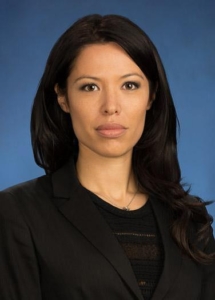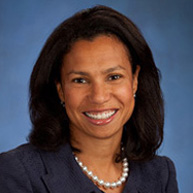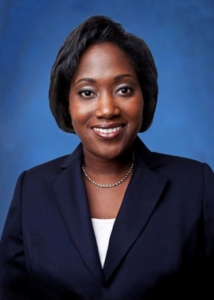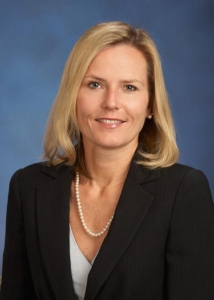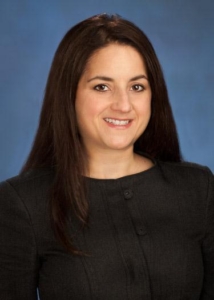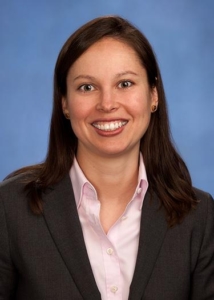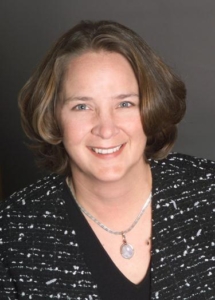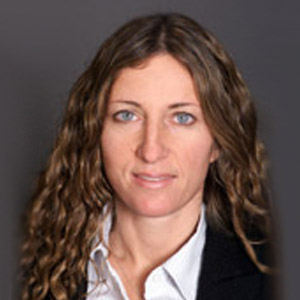 “For the first fourteen years of my career, I was not out at work. I think this was a self-imposed barrier that was holding me back,” said Susie Scher, Managing Director and Head of Investment Grade Capital Markets/Syndicate and Liability Management, Goldman Sachs.
“For the first fourteen years of my career, I was not out at work. I think this was a self-imposed barrier that was holding me back,” said Susie Scher, Managing Director and Head of Investment Grade Capital Markets/Syndicate and Liability Management, Goldman Sachs.
“It was a turning point in my career when I decided that I just couldn’t hide anymore. I was able to be myself at work all the time,” she added, “and everyone at Goldman Sachs was so incredibly supportive and accepting.”
Her Beginnings in Banking
Although Scher has had a long and fulfilling career in banking, she attributes her start in the industry to serendipity. When Scher entered her final year at Middlebury College as a Political Science major with a minor in English, she was certain that she would either become a lawyer or a writer upon graduation.
Scher did not pursue either of these paths, and instead decided to enter the workforce. “I applied for a bunch of different jobs in banking, consulting, advertising, and marketing, among others,” recalled Scher, “and ended up with thirteen interviews at different companies, including a handful of investment banks.”
Even though Scher had developed a bit of an aversion to math growing up, she did not let this deter her from pursuing a car
eer in banking. She explained, “I loved the energy of the people who interviewed me for the investment banking jobs. They were smart, type A, young individuals, and I thought it would be a lot of fun to work for and alongside those people.”
After the interview process, Scher accepted a job with Salomon Brothers, and the feeling she had about the energy of the business was spot on. Moreover, Scher began to realize that she had an affinity for understanding corporate finance and how companies operated from a strategic perspective.
“I decided to go to business school at Columbia after three years at Solomon Brothers to obtain a broader view of corporate America. Here, it clicked for me that corporate finance was a story being told with numbers,” Scher said. “This is when I realized that banking was for me.”
In business school, Scher also became very interested by how external factors impact the markets, and thus impact businesses. “I paired my interests in corporate finance and the markets and landed in a capital markets function which marries advising companies and executing transactions,” she said.
Her Work at Goldman Sachs
Currently, as head of Investment Grade Capital Markets/Syndicate and Liability Management, Scher takes a lot of pride in the growth of this business considering just ten years ago, the firm was not as strong in the investment grade bond business as it is today. Now, Scher and her team handle many high profile deals and attract even more business when the markets are tumultuous.
“I advise big cap companies on financing, risk management and capital structure,” said Scher, “and right now I am focusing a lot on capital structure optimization and helping companies with the complexities of M&A transactions in a global market.”
She added, “Our clients rely on us for our judgment on complex deals or during tough markets, and I am proud to have been a part of the rebuilding and restructuring of the investment grade debt finance business over the last decade.”
According to Scher, one of the most rewarding aspects of her job is having the opportunity to work with some of the most interesting and exciting clients in the world. “I am also really interested in how technology will continue to transform our industry and how we do business in the future,” explained Scher.
Her Experience as a LGBT Woman in Banking
“As a gay woman in banking, I do not feel like I have encountered insurmountable hurdles,” Scher remarked. “The path to success requires all of us –men, women, gay people and straight people –to think about how to be strategic about our careers,” she added.
Read more
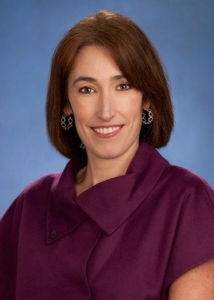 The Glass Hammer is celebrating Hispanic Heritage Month by featuring profiles of Hispanic Women Business Leaders all week long!
The Glass Hammer is celebrating Hispanic Heritage Month by featuring profiles of Hispanic Women Business Leaders all week long!


